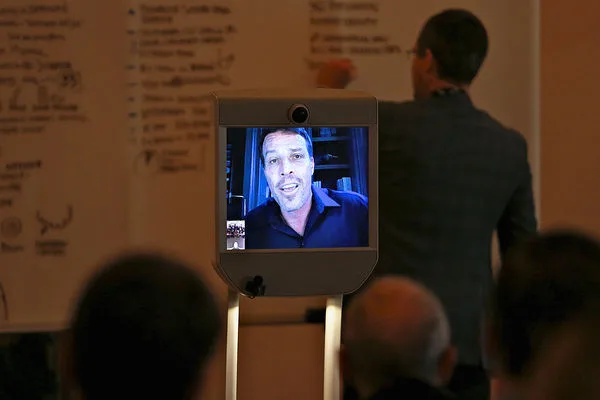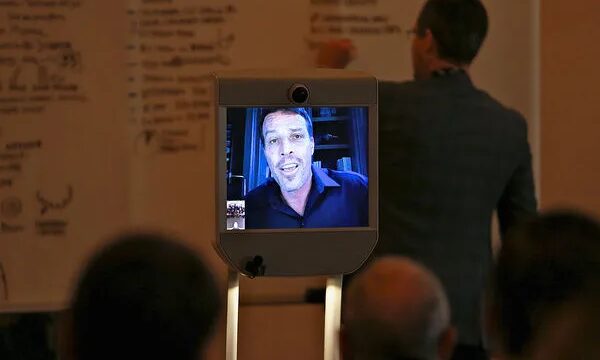Recently, I saw a conversation on my Facebook feed talking about an investment book from motivational speaker, Tony Robbins, and I honestly thought it was a joke, until this story from Business Insider proved my worst fear.
It turns out I’m the last person on earth who knew Tony’d published this book.

I respect Tony Robbins as a motivational speaker and life coach; however, I‘m not sure how much I respect him as a voice in personal finance, and from the looks of what’s in this book, I may be right.
Yes, there are some great pearls of wisdom like “save more and invest the difference” or “earn more and invest the difference;” however, I’m kind of weary of the advice he gives after that. Apparently to save money on taxes over your lifetime, Robbins suggests possibly moving to a state with no income taxes.
The State Of Zero Income Tax vs. Reality
I actually lived in a state without state income taxes for about 5 years, and what I realized over that period of time was that I was never 6% richer because of it. What people neglect is the fact that just because a state doesn’t charge you income tax doesn’t mean it doesn’t find ways to tax you on other items.
I paid more for gas, groceries, alcohol and other items living in a state with no state income tax. Before you take Mr. Robbins’ advice and pack up for Alaska or Wyoming, make sure that you are making an apples to apples comparison of cost of living.
We All Dream of Something For….Very Little
Mr. Robbins also touts the idea of asymmetric risk-reward or big upside potential with little downside risk. This is the holy grail of investing and I have to tell you that it doesn’t come without a price. Apparently he is talking about annuities, and as someone who has researched and sold annuities, I think this is an investment vehicle that you really can’t discuss flippantly and without significant training in it.
Annuities are an insurance product and depending on the type of annuity, you have the opportunity to receive principal protection on your investment while getting investment returns on your money. The detail that many people selling annuities neglect to warn you about is that you pay quite a bit of fees to the insurance company for this type of asymmetric risk-reward. Fees that Mr. Robbins warns about earlier in his book. So apparently he wants you to move to Alaska to save 5 or 6% in taxes, but then take that savings and pay it to an insurance company.
The Golden Rule: Consider The Source
To his credit, Mr. Robbins does disclose that he’s invested in a company that makes money from distributing annuities, which thankfully explains his love of annuities, but it doesn’t change the fact that I question his authority on giving investment advice to begin with.
Would you take investment advice from Tony Robbins? Do you like annuities as an investment?
Photo: XPrize Foundation
Check out Shannon’s podcast, Martinis & Your Money.


No spoilers! My copy is waiting for me to pick it up at the library on Saturday. =)
As for no tax states, I think it can be a win in the relative sense. All the job offers I’ve had for states outside of FL were in high tax (income, property, and sales!) and high COL areas (NYC, SF), which definitely would have made it harder to keep ahold of as much money as we have while also living the nice life that we do.
I’m about 50 pages into the book and save for a few pearls of wisdom I’ve found the content to be so bloated with promises and “teasers”, I can barely get through it. I already bought the book, you don’t have to keep selling me on it. Though I guess it’s a sales pitch for other things.
I think the no state income tax idea sounds great if you’re also moving to an area with a lower cost of living. I live in Indiana where everything is dirt cheap. It would be unlikely that I could get a house as nice as mine anywhere in the country for what I paid for it.
We moved from an income tax state (Virginia) to a no income tax state (Texas). We didn’t save as much as promised. I’m sure if we’d lived in a very high tax state (NY, NJ?), we’d have noticed a difference, but, for example, property taxes in TX are MUCH higher than in VA. Sales tax is higher, too. So, it probably balances out.
I personally suspect the real move somewhere cheaper option is international geographic arbitrage – moving somewhere where the purchasing power of the dollar is much stronger than it is in the United States.
I guess like anything else that you might be a fan of, take what advice you think can help or apply to you and leave the rest.
I looked into the book after hearing him talk to Tim Ferris about it. I came to the same conclusions as you. And while I’m sure he’s great for motivation and personal success, he needs to stay out of the finance game.
I’m also not surprised that every chapter is trying to sell you on something, rather than making an actual conclusion about anything.
We live in Massachusetts, or what others call Taxachusetts. But I grew up in NJ, and we almost moved back last year, so I can tell you that MA taxes pale in comparison, particularly on real estate. Our northern neighbor, NH, loves to tout that it has no sales tax and no income tax. That’s true, and their gas prices are lower than in MA, probably because of lower taxes. However, real estate taxes are very high. To cross the border and live two miles from where I live now, the home price would be about 15% cheaper, but my real estate taxes would more than double (and will only go up), and I would receive fewer services for the money. Hospitality industry taxes are high, too. Minimum wage is higher in MA, and jobs in general pay better here. So it’s probably a wash, or close to it.
Okay, “Taxachusetts” had me nearly spitting coffee. You have to stop doing that.
I’d love to see that spreadsheet comparing and contrasting…but I get your point. Taxes are half of the equation. If I pay nothing but have no opportunity for income and a crappy lifestyle, who cares?